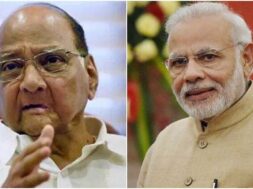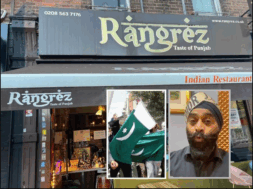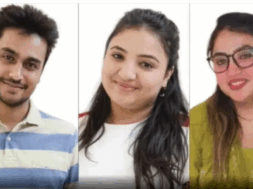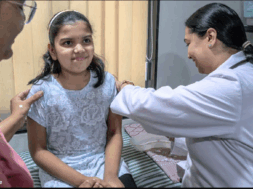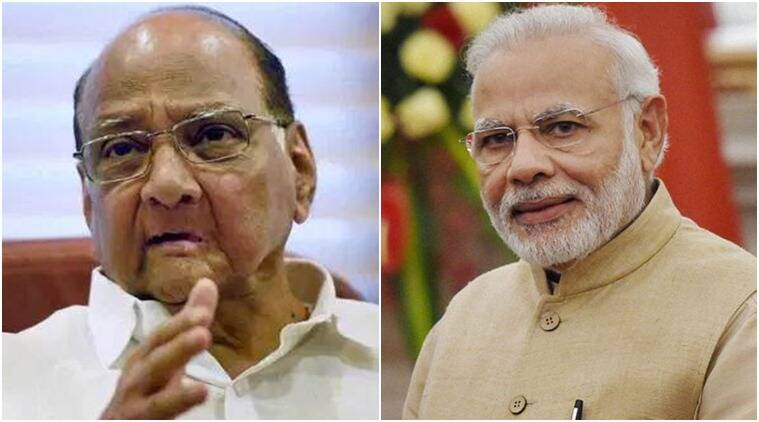
Manas Dasgupta
NEW DELHI, April 6: The veteran politician and the chief of the Nationalist Congress Party Sharad Pawar sought to dispel the buzz created in the political circles over his sudden meeting with the prime minister Narendra Modi in Delhi on Wednesday stating that he called on the latter only to raise the recent raids by the central agencies against some leaders of his party and its allies.
The one-on-one meeting held at the prime minister’s office in the parliament building lasted for about 20 minutes. Later Pawar said he had raised the raised the action taken by central probe agencies against leaders of Maharashtra’s ruling coalition during his meeting with Modi. The meeting was held a day after the Enforcement Directorate seized assets worth more than ₹ 11.15 crore belonging to Shiv Sena leader Sanjay Raut’s wife and two of his associates in an investigation linked to alleged land deals. Earlier on Wednesday morning, the Central Bureau of Investigation took into his custody the former home minister and NCP leader Anil Deshmukh who was arrested in connection with the alleged extortion racket to raise funds from hoteliers and bar owners through the police.
Pawar later told reporters that at his meeting with Modi he asked the prime minister about the central agencies let loose against the leaders of the Maha Vikas Aghadi (MVA) government in Maharashtra comprising the Shiv Sena, NCP and the Congress. “On what basis was action taken against Sanjay Raut? This is injustice. What’s the provocation for action against Raut – just because he is making some statements” Pawar asked Modi. Pawar also discussed the long-pending approval by the Maharashtra Governor of a list of 12 names for the state Legislative Council. The state government has been pushing for the Governor’s sign off on its list of members nominated to the legislative council for more than two years.
Pawar’s meeting with the prime minister followed the dinner party he had thrown for the Maharashtra MPs and MLAs at his Delhi residence on Tuesday night in which the Union Minister and senior BJP leader Nitin Gadkari was also present. Significantly, the PM’s meeting with one of the senior most opposition politicians in the country also took place just a couple of months before the Presidential election due in July-August, this year.
Pawar’s meeting also comes in the backdrop of the demand by NCP youth wing to appoint him the UPA chairperson. Pawar again stressed that he was not ready to lead the United Progressive Alliance (UPA) coalition that, led by the Congress ruled the country for 10 years. “I am not ready for to be UPA chairperson and we don’t want to disturb the present set up,” Pawar said. Though he is one of the prime movers in the opposition, Pawar has more than once rejected the idea of leading the UPA. “I am not interested,” he had said recently, when asked whether he would consider such a position if only to rally the opposition for a united fight against the BJP in the 2024 national election.
In Mumbai, no one had an inclination what transpired at the Pawar – Modi meeting. The Maharashtra Deputy Chief Minister Ajit Pawar, Sharad Pawar’s nephew, downplayed the meeting saying not much should be read into it. “I have no information about the meeting…I can comment only when I get some information, but the country’s Prime Minister and the leader of a national party can meet to discuss development issues. There are some important issues on which discussion is required…they must have taken those up. Both are big leaders, I don’t know what they discussed,” Ajit Pawar said.
The BJP leader Sudhir Mungantiwar said, “The meeting between the two leaders only highlights the fact that despite ED action against NCP leaders, there is no bitterness between BJP and NCP.” Another BJP leader Pravin Darekar, who is the Opposition leader in the state Legislative Council, guessed that the meeting could be in connection with the ED cases against NCP leaders. “ED is investigating several MVA leaders. Two NCP leaders are in jail. Several Sena leaders are being investigated. May be because of this, Pawar met the PM,” Darekar said.
Meanwhile, Modi chose his address to BJP workers and leaders on the party’s foundation day on Wednesday to assert that dynastic parties were the “biggest enemies” of democracy and that the BJP, in marked contrast, stood for devotion to the country rather than a family.
This is the second time he has, in this Parliament session, hit out at dynastic politics in his speeches to partymen. A few weeks ago, right after the results for five Assembly polls were declared, he said the same in his address to the BJP parliamentary party. “Dynastic parties are dedicated to further family rule and have little regard for constitutional norms, and cover up corruption and misdeeds of each other even though they may be active in different States,” he said.
Targeting political rivals, he observed that when these parties active nationally or in States come to power, members of some families dominate from local bodies to Parliament. Only the BJP has challenged them and made it an electoral issue. They did not allow the country’s young talent to come up and betrayed them, he said, without naming any party. He noted that BJP governments had run welfare schemes without any discrimination and worked to take them to every beneficiary, while previous dispensations were driven by vote-bank politics in which some sections of society were made promises while larger sections ignored.
The BJP succeeded in convincing people of the dangers of such an approach, he stressed. Discrimination and corruption were “side effects” of vote-bank politics, he remarked. The government machinery now worked to reach every intended beneficiary as part of its resolve for saturation coverage of welfare programmes. Any discrimination cannot stay in such a mechanism, he said, asserting these measures were the biggest instrument of social justice. For the BJP, he said, “rajniti” (politics) and “rashtra niti” (policies for country’s welfare) cannot be separate.
In a reference to geopolitical developments following the Russian invasion of Ukraine, he pointed out that India was acting by keeping its national interest supreme when the world was divided in two opposing poles.
